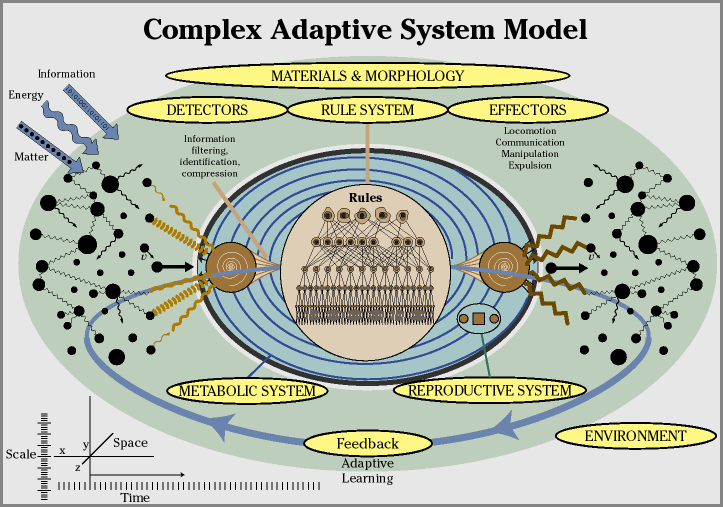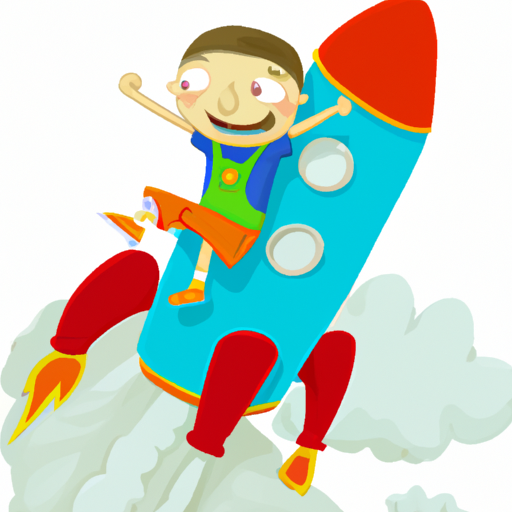
Since the beginning of the year, the CDC released data showing that autism rates have increased dramatically. This finding puts the spotlight on two issues: why, obviously, and what causes autism in the first place. The two are intertwined to some degree, but we’ll do our best to untwine them, discuss them rationally, and come to some informed conclusions. What a snarky, sarcasticky, profaney good time we have in store for us here!
VACCINES DO NOT CAUSE AUTISM!
We have to say it loud and proud because that opportunistic shyster, Robert Kennedy, Jr. not to be confused with rising star who was shunted off to the political gulag, special representative to Northern Ireland, Joe Kennedy III. Apparently, Robert is the willing useful idiot of Steve Bannon to play some kind of trumped up Jill Stein-role in 2024, turning his embarrassing anti-vaccine crusade into equally embarrassing “run” for the presidency. I’m sure the seismic activity happening in Massachusetts are all due to the Kennedy’s turning somersaults in their graves.
Rising Autism Rates
There’s lots of numbers and data to report on the rising autism rates. Let’s summarize it here just to get it out of the way:
SURVEILLANCE
- AGE EIGHT. The magic number here is eight years old. Most of the incidence rates have been calculated based on diagnosis by the age of eight. Assume that unless reported otherwise.
- INTELLECTUAL ABILITY. One of the big divides in Autism Spectrum Disorder (ASD) is intellectual ability versus intellectual disability.
- SURVEILLANCE SITES. No, this is not the beginnings of a far flung serpentine conspiracy theory supporting Robert Kennedy’s long shot bid to the be the next Jill Stein and return Trump to office. Instead, the CDC maintains the Autism and Developmental Disabilities Monitoring (ADDM) Network across the country to provide estimates of the number of children diagnosed with autism by the age of eight in two phases.
- Eleven surveillance sites across the country in Arkansas, Arizona, Colorado, Georgia, Maryland, Missouri, New Jersey, North Carolina, South Carolina, Utah, and Wisconsin.
- Phase One. The aggregation of comprehensive evaluations completed by professionals, like educationalists and healthcare providers.
- Phase Two. All these records get evaluated by trained clinicians to determine if they meet the criteria for ASD as described in the DSM.
- No test. All of this is necessary because there is no single diagnostic test for ASD.
FINDINGS
This what they found:
- TRIPLED. A Rutgers University team calculated that the rates of autism diagnoses rose three fold between 2000 and 2016 in the New York and New Jersey metropolitan area.
- ONE IN 54. In 2016, one in 54 children had been diagnosed with autism by age eight as compared to one in 150 in 2000.
- RISING. The increase in diagnoses of children by age eight has been rising steadily:
- 2000, one in150 children
- 2016, one in 54 children
- 2018, one in 44
- 2020, One in 36
- CHILDREN OF COLOR. Finally, People of Color are ahead of whites in something! The CDC estimates that 3% of of Black, Hispanic and Asian or Pacific Islander children have an autism diagnosis as compared to 2% of whitey’s children.
- INTELLECTUAL DISABILITY. More Black children with intellectual disabilities were diagnosed with autism than white, Hispanic, or Asian or Pacific Islander children.
- BOYS. There were four times as many boys as girls diagnosed with autism.
- GIRLS. The diagnosis rate for girls topped one percent for the first time ever. So equality?
- FOUR YEAR OLDS. #COVID-19 disrupted the diagnoses of four year olds. When compared with eight year olds, the four year olds were less likely to have been evaluated for autism during the pandemic. This effect will be seen in the numbers for years to come.
Explanations
What gives? What explains this explosion in diagnoses of autism, especially “higher functioning” autism or autism without intellectual disability? What about exponential growth among People of Color and girls?
Awareness
Since we have been autism awarenessing since the 1970’s, part of the explanation is that we’ve succeeded. We’re much more aware of autism in 2023 than we were even in 2000. Since the Big Bang Theory came out, everybody and their monkey is an expert on autism and make a diagnosis every time they sit on the can. Oh, I KNOW what’s up with so-and-so, they’re AUTISTIC!
Great. Autism has become the new gay. Remember in the ’90’s and early aughts when you were sure everybody you knew was gay? Nowadays, you’re just not cool unless you have an autistic friend or two.
More importantly, pediatricians have been screening for autism as part of their well-child clinics. There are school districts in New Jersey that have all the autism bells and whistles for diagnosis and services, meaning, they screen nearly every child, which means they catch nearly every child that qualifies. These folks have an incidence rate of ten percent. Just wait until we start demanding testing and services for ten percent of the American population of school-aged children. Suddenly, autism awareness will become the new Critical Race Theory and part of being woke.
The New Jersey findings also suggest that screening for autism is being unevenly applied across the country with regions. areas, and demographic groups being reported and others very thoroughly counted.
There are two trends here:
- One, an overall increase in screening for autism which has resulted in higher prevalence in communities of color and among girls.
- And two, a continuing demographically-based disparity in the diagnosis of children.
What it adds up to is that
- There are communities in the US where children with autism are diagnosed and given the support services that they and their families need like those ones in New Jersey where 10% of the children have been diagnosed.
- There are communities where children are diagnosed but don’t have all of the services that they and their families need.
- And, there are communities where children are under diagnosed and there are no services for the children who are.
Increased awareness has brought us closer to the “real” number of children with autism, which is a necessary step in the right direction.
Genetics
Genetics is as important as screening for the increase in the number of children being diagnosed with autism.
- 2,000 to 3,000 genes are thought to contribute to ASD. Because it is a spectrum disorder with a dim sum kind of trolley of choices for behaviors and symptoms, it is a very complex genetic picture to understand. Of those thousands of contributing genes, though, about 100 are closely linked.
- OLDER PARENTS carry a much higher risk of producing autistic children than younger parents and with people putting off having children until they’re older, we’re likely running into the failing gene scenario.
- ENVIRONMENTAL INTERACTION with genes could also contribute. There is some data supporting a role for air pollution and for viral childhood infections, especially in boys, aggravating genetic factors.
Whether or not you buy into the theory that we are producing more children with autism than ever before or that we are just recognizing the children with autism more easily, we need to improve the way we treat people with autism. It is clear that (a) there is a large number of people on the spectrum. Up to 10% if we take those NJ numbers and (b) we have woefully inadequate services and accommodations for those of us on the spectrum.

While this post alone is worth roughly a kajillion dollars, I know, all I really need is a bit of love thrown my way!
- SHARE this post with anyone you think might could be interested in autism even the eensiest teensiest itty-bittiest bit. They’ll appreciate it. They really really will.
- LIKE or RATE this post just to let me know you were here. You don’t even really have to like it like it, you just have to like it, know what I mean?
- COMMENT on this post and tell me your pet theory on autism and thoughts on treating it and prevalence or just the number of people you know who are on the spectrum.
- FOLLOW the blog or join the dozens already on our email list!
Image Attribution
The image was produced by WordPress’ AI image widget using the phrase, autism rides a rocket. It is licensed however WorldPress licenses it’s AI images.
Categories: Autism





















I am of that opinion that everybody is on the spectrum to some degree or another.
Just think of the number of people we have all met who we thought were “normal” just to discover, on greater association, that everybody seems to have some personality quirk.
Just as people are on a scale of intelligence, emotional and otherwise, so are people are on a scale of autism.
I am not a doctor, nor do I play one on TV, but using Occam’s razor with the increasing new evidence this would seem to be the simplest explanation hat accounts for all the know facts.
LikeLiked by 1 person
Howdy Any!
I definitely agree with you, everyone is on the spectrum. If I haven’t said so in a blog post, well, then I orta, since I’ve often said it out loud to actual human beings. As my boss once told me, we’re all eccentric in our own way. And, neurotypical people have told me about problems they have in navigating social situations and predicting what is happening around them. So, yes, I think we all are on the spectrum.
With over a thousand identified genes contributing to autistic symptoms, it is easy to imagine that neurotypicals have some of those genetic variants, too.
I think, though, that it isn’t sufficient for explaining the increase in diagnoses. If the number of cases of “autism” are holding and neither increasing nor decreasing, then the explanation would have to lie in surveillance and testing, i.e. meaning that we are testing more children and that the tests are accurate.
I do not think that it is such a bad thing to have more autistic people among us. I think it will make us better in many ways, especially as we confront climate change.
It was delightful to hear from you. I really appreciate you taking the time to write in. We are all better when we exchange our points of view and information we have.
Huzzah!
Jack
LikeLike
thank you.
LikeLiked by 1 person
Reblogged this on cabbagesandkings524 and commented:
Calico Jack – So much more Autism
LikeLiked by 1 person
We discussed in a different thread the high probability that back before Autism became a clear diagnostic category, a lot of kids were diagnosed as schizophrenic who were actually autistic. I’m remembering that in the 80s and 90s the focus was on ADHD, OCD, and “conduct disorders” like ODD (Oppositional Defiant Disorder). I wonder how many of the kids given those labels may have been ASD instead or in addition.
I tend to thing Temple Grandin may be right: “In an ideal world the scientist should find a method to prevent the most severe forms of autism but allow the milder forms to survive. After all, the really social people did not invent the first stone spear. It was probably invented by an Aspie who chipped away at rocks while the other people socialized around the campfire. Without autism traits we might still be living in caves.”
You’ve probably seen this study report, but in case you missed it —- https://scitechdaily.com/cracking-the-autism-code-brain-study-reveals-four-distinct-subtypes/
LikeLiked by 1 person
Haha, great minds think alike. I just wrote this in another comment. Of course, I had read this comments a couple of days ago and had heard similar sentiments expressed before. It really does speak to the need to normalize autism and make our world far more autistic friendly.
I hadn’t seen the article before, so I really appreciate your sharing it. I found it somewhat frustrating because I wanted a lot more details on the four types and barely got the types.
The interesting thing is the dividing lines between the types. The first major division being verbal intelligence or not and anther being social communication and repetitive behavior. The connection between social communication and repetitive behavior is perhaps the most significant since repetitive behavior can be very off putting, which can, in turn, limit social exposure and the development of social communication skills.
Huzzah!
Jack
LikeLiked by 1 person
And, there we are, back into nature-nurture issues.
LikeLiked by 1 person
Although my experience with autism suggests it is much more nature than nurture. Twin studies suggest that it isn’t100%, though.
LikeLiked by 1 person
Without the statistics of scientific research and data collecting, how can this be, valid? I mean, what’s this “finding”, based off of? And, how large is the sample? And, is the data that’s been, collected, unbiased? All of these, are questions we should ask, before we all, fall into, the, feeding frenzy of what those, so-called, experts, claimed to be, absolute, “truths”, and, wouldnt the parents, be, harming their own young, by, enrolling them into those drug trials to, prevent the “spread” of autism in this world?
LikeLiked by 1 person
Howdy Taurus!
I think there are.some.misunderstandings afoot here.
First, autism is contagious. It is genetic, so when the right environmental conditions are present, the child exhibits symptoms.
Second, it is a spectrum disorder, meaning it has a wide number of possible symptoms that can be exhibited. No one exhibits them all.
Third, it varies in its severity from being nearly totally debilitating with no communication possible to being highly functional — think the characters on Big Bang Theory.
And fourth, it is not commonly treated with drugs. There are several common co-occurring disorders like depression and anxiety that can be treated with drugs.
These experts are simply gathering records recorded by other professionals for other purposes and evaluating them for symptoms and severity of autism. Then, they take the number of autistic children in those piles of records and estimate the number of autistic children in the entire population.
From the data gathered so far it seems that a reasonable estimate of the percentage of children is about 2%, but could be as high as 10%.
The argument that is being built by researchers like these and others is that severe and debilitating symptoms need to be mitigated through effective therapies, but the world needs to be appreciative, accepting, and accommodating of people.with autism, especially those with high verbal intelligence and social communication skills.
Huzzah!
Jack
LikeLike